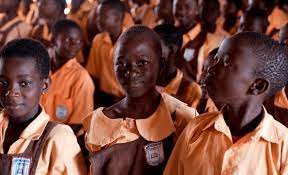Editorial
Changing the narrative of sex through sex education

Let’s make sex education compulsory
Dear Editor,
In Ghanaian society, issues relating to sex are not often talked about in our homes: Just, the mention of sex then you will see mama looking sternly at you. In some societies the mention of it is a taboo, but the question is if these issues are not addressed by our own parents, then who should we run to, to make informed decisions on sexual matters. Is it when the girl-child is being influenced by peers to practise it as a form of satisfying her curiosity? Or when the boy-child under the influence of friends practises it to show how manly he is?
This is a million-dollar question begging for an answer. According to research, comprehensive sex education, (which emphasises the benefits of abstinence while also teaching about contraceptives and disease-prevention methods) has been proven to reduce teen pregnancy and STD infection. Thus, sex education explores values and beliefs about those topics and helps people gain the skills that are needed to navigate relationships with self, partners, community and manage one’s own sexual health and to create awareness of its consequences of unwanted pregnancy, early parenting and others if not done safely.
Sex education highlights hygiene issues. It becomes more important for young people to keep their bodies clean at puberty. Comprehensive sexual education provides essential information about how people can maintain their hygiene. Since not all parents can instruct their children on these methods and may be embarrassing to talk about these issues with children. Sex education helps young people to understand what is normal. Adolescents do face a hard time when hitting puberty. They often take certain things as abnormal. Sex education helps them to understand that their body is changing physically.
In an interview with Mrs Helena Dickson, a Counsellor and Midwife with Pentecost Hospital at Tarkwa in the Western Region, she states that “not only does sex education have to be introduced at the early stage in adolescent life but its abstinence, too. She explained further that, at that stage they were so eager to engage in boyfriend-girlfriend relationship with the aim of knowing and feeling what sex entailed and this occurred because of the hormonal change in adolescents. Adolescents need to be educated about the consequences of sex so they don’t become pregnant”.
She added that this education would alert the young girls to be extra careful in their lives and slow down the eagerness to feel for sex. The education will let them know that these feelings they sometimes experience are normal but it behoves on them to control themselves not to fall into temptation.
She concluded that diversional therapy like playing football, ampe, ludo, oware and others could be introduced when they felt for sex.
In conclusion, sex education is an important aspect in every adolescent life, so parents should be open for discussion when issues about sex are introduced by their wards. It should be made a subject in the secondary school just as physical education.
Alice Mensah
Ghana Institute of Journalism (GIJ)
Editorial
Concern over mentally ill persons roaming Kwame Nkrumah Circle Interchange
Dear Sir
I write to express my concern over the growing number of mentally ill individuals roaming the Kwame Nkrumah Circle Interchange in Accra.
This area, a vital transportation hub and commercial centre, has increasingly become home to several persons visibly suffering from mental health issues, often without adequate care or supervision.
This situation poses risks both to the affected individuals and the general public. Some of these individuals are exposed to traffic hazards, unsanitary conditions, and in some cases, hostile treatment from passersby.
There have also been reports of occasional erratic behaviour, which causes fear and discomfort among commuters and vendors.
Mental health is a public health issue, and these individuals deserve compassion, medical attention, and a safe environment.
I urge the Ministry of Health, the Accra Metropolitan Assembly, and relevant NGOs to collaborate on a sustainable solution including mental health outreach programmes, rehabilitation, and safe housing.
Kwame Nkrumah Circle should be a symbol of progress, not a place where the vulnerable are left to struggle. Let us act with urgency and humanity.
From John Boateng
Kwame Nkrumah Circle
Editorial
Parents should encourage their wards writing BECE
Dear Editor,
AS the 2025 Basic Education Certificate Examination (BECE) takes off across the country starting Wednesday, I write to encourage all candidates taking part in this important step in their academic journey.
Out of a total of 603,328 candidates taking the examination this year, 306,078 are females, whiles the rest 297,250 are males.
Over the years, the examination begins on Monday and ended on Friday but per the timetable, this year’s candidates started on Wednesday and will end next week.
The BECE is not just an exam, it is a milestone from one stage to another. It represents years of hardwork, dedication and the dreams of countless students who hope to continue their education and build a brighter future.
This is where the role of parents, teachers and society become beneficial. Let us offer not only academic support but emotional encouragement to them.
I also appeal to educational authorities to ensure fairness, proper supervision and transparency throughout the examination period.
The journey may be challenging, but with time, focus and discipline they can make it.
I wish to use this platform to wish all of them well.
Naa Koshie, Teshie






